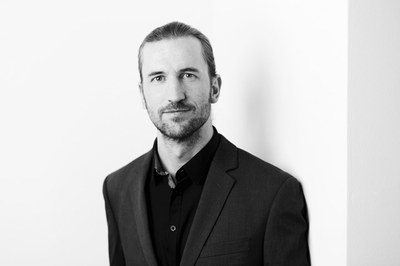Heisenberg professorship goes to Bernstein researcher Martin Rolfs

Martin Rolfs, Foto: Kopf und Kragen
On December 19, Martin Rolfs, scientist at the Bernstein Center Berlin (BCCN Berlin), will be inaugurated as Heisenberg professor of psychology at the Humboldt University Berlin. This prestigious career step indicates not only the achievements of Martin Rolfs; it also shows that the structures established by the Bernstein Center Berlin (BCCN Berlin) support young researchers’ academic careers.
The position as professor of psychology indicates a fairly classic scenario. Yet, Martin Rolfs harbours a more modern understanding of the research field. Traditionally, psychology aims to understand the human mind and behaviour as a sequence of perception, cognition and action. This understanding changed decisively after scientists in Europe and the US started promoting an integrative approach to understanding perception some 20 years ago. Perception is now viewed as an interactive process that cognition and behaviour draw on and which is itself strongly influenced by our actions.
Rolfs wants to take this even further. To him, it is essential to conduct research across disciplines in order to develop the basic understanding of psychological functions. The Bernstein Network Computational Neuroscience stands for such interdisciplinary research and offers viable structures in this regard, which is particularly true for the Bernstein Centers. This is why the network around the Bernstein Center Berlin attracted Rolfs to stay in Berlin.
„To me, the Heisenberg professorship offers the freedom of choice both in terms of my research focus and the place where I find the best support,“ Rolfs says. “I had offers from Hamburg and California. Both these places are attractive. But Heisenberg allows me to stay in Berlin and build on the interdisciplinary network I established over the past years. To me, this holds a great promise to gain international visibility for and in my field.”
Naturally, Martin Rolfs had to show an excellent international research record. To push his output and the innovative quality of his research further, Rolfs relies on an outstanding structural environment in which interdisciplinary research is not only accepted and wanted, but routinely exercised. The BCCN Berlin offers just this.
The computational neuroscience in Berlin will benefit from the Heisenberg professorship showing that research ‚made in Berlin’ is at eye level with the cutting edge of international research.
Heisenberg Professorship
The Heisenberg Programme is directed primarily at those researchers who have qualified for professorship via the Emmy Noether Programme, DFG staff positions, private-sector research or non-faculty academic positions. The target group also includes junior professors who have received positive evaluations, those who have achieved their habilitation or equivalent, and German researchers returning from abroad, as well as appropriately qualified foreign researchers looking to pursue careers in Germany.
Facts and Data BCCN Berlin
- 5 Bernstein professorships, one junior professorship, one Heisenberg professorship
- Supporting partner insitutions:
Charité-Universitätsmedizin Berlin,
Humboldt-Universität zu Berlin,
Technische Universität Berlin - 56 members (professors and group leaders)
- 80 finished PhD and 76 Master degrees since 2008.
Bernstein Network Computational Neuroscience
The Bernstein Network is a research network in the field of computational neuroscience; this field brings together experimental approaches in neurobiology with theoretical models and computer simulations. The network started in 2004 with a funding initiative of the Federal Ministry for Education and Research to promote the transfer of theoretical insight into clinical and technical applications. Today, after more than 10 years of funding by the Federal Ministry, the Bernstein Network consists of more than 200 research groups.
It is named after the German physiologist and biophysicist Julius Bernstein (1839-1917) whose "Membrane Theory" provided the first biophysical explanation for how nerve cells encode and transmit information by electrical currents.
Further Information
Website Bernstein Center for Computational Neuroscience Berlin
Website Bernstein Network Computational Neuroscience
Website of the DFG Heisenberg Programme
Website Research Group Rolfslab
